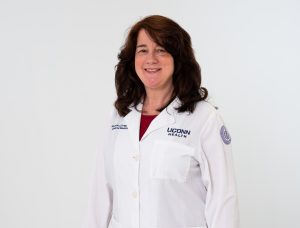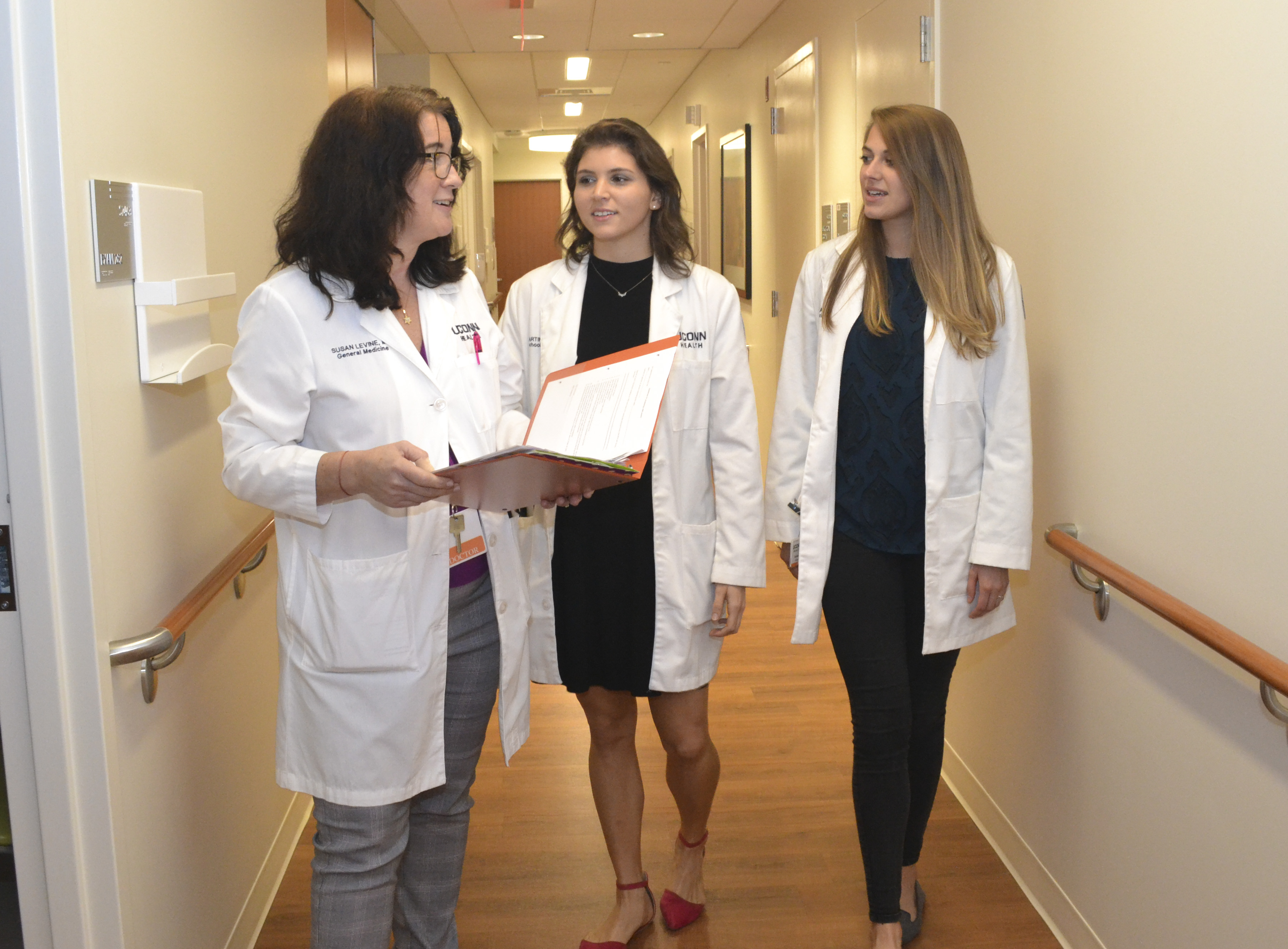When refugees from war-torn countries first arrive in the United States, one of their most urgent priorities is health care. For many refugees arriving in Connecticut, that means UConn Immigrant Health, a tripartite entity focused on clinical care, education, and advocacy for refugees and other immigrants.
Dr. Susan Levine directs UConn Immigrant Health, and serves as associate professor of medicine at UConn Health and as Ambulatory Site Director of the Internal Medicine Residency Program at UConn School of Medicine where she trains future generations of primary care providers. She teaches residents and medical students about cross-cultural care and the unique health care needs of refugees and immigrants.

“In the Outpatient Pavilion at UConn Health, we take care of newly arrived refugees, we perform CDC-mandated refugee health assessments within 30 days of a refugee’s arrival,” she says. “We also provide green card exams and primary care to an incredibly diverse population of patients. To date we have seen close to 1,000 immigrants from over 40 countries across the globe.”
Doctors like Levine need to have specialized training and knowledge to care for this patient population, particularly about the latest in global diseases, overseas pre-departure treatments, and much more.
Refugees settling in Connecticut seen at UConn Health come from a wide array of countries, including Syria, the Democratic Republic of Congo, Afghanistan, Honduras, Guatemala, Somalia and most recently, Ukraine.
“Since the spring at UConn Health we have seen an influx of refugees from the U.S. evacuation of Afghan military personnel, as well as Ukrainians,” says Levine, who adds that more refugees are expected to immigrate to Connecticut over the coming months.
UConn Health’s program receives most refugee patient referrals from large resettlement agencies, and patient appointments are typically established with Levine by the immigrants choosing to settle in the Farmington area. Each refugee is typically scheduled as a patient at UConn Health within a week of arriving to the U.S. via their resettlement agency. UConn Health’s program then coordinates the pre-doctor visit blood draw labs, tracks down overseas exam records, and secures an in-person translator for the clinic visit.
“I really want to acknowledge the amazing work of a couple of our staff, Lucy Sokolsky and Jenny Ojeda, who together have been instrumental in coordinating the UConn Immigrant Health Program,” Levine says. “Their dedication, patience and attention to detail are absolutely wonderful. The pre-arrival coordination of these visits is complex and for patients this process can be quite stressful. I am grateful to have their help putting patients at ease and facilitating their care.”
With the growing demand for care, Levine has shared her training with colleagues who are increasingly comfortable providing primary care for refugees and immigrants.
“It is truly rewarding to provide health care for such a vulnerable and inspiring population. I’m grateful to share in their care and this important transition in their lives,” says Levine.
Levine adds: “This is what Thanksgiving is all about – what UConn is all about — and I am very grateful for the opportunity to help refugees and newly arriving immigrants looking for a better life and safety in our country and state.”
“This program is amazing,” says Anne Horbatuck, Chief Operating Officer for UConn Medical Group at UConn Health. “Our thanks to Dr. Susan Levine and the program’s entire team for your dedication, hard work, and quality care.”
UConn Health Interim CEO Dr. Bruce T. Liang agrees.
“This is a fantastic program and a wonderful service to these patients, UConn Health, the State and the world. We are grateful for the work of the UConn Immigrant Health Program,” says Liang. “My happiest wishes of thanksgiving to all including these refugees and immigrants in need turning to UConn Health as patients for their care.”



